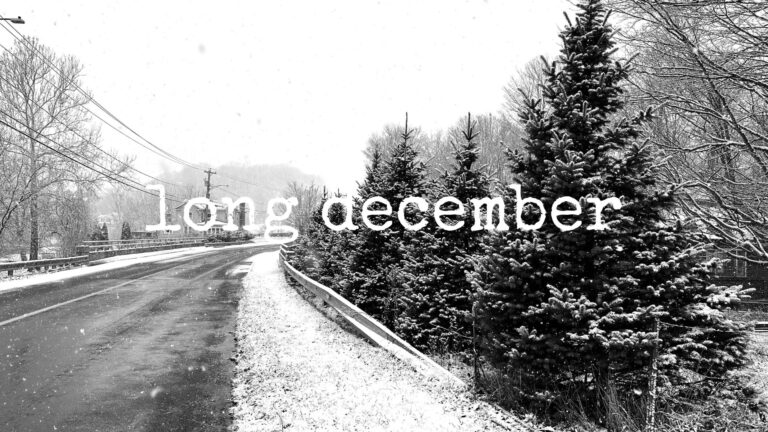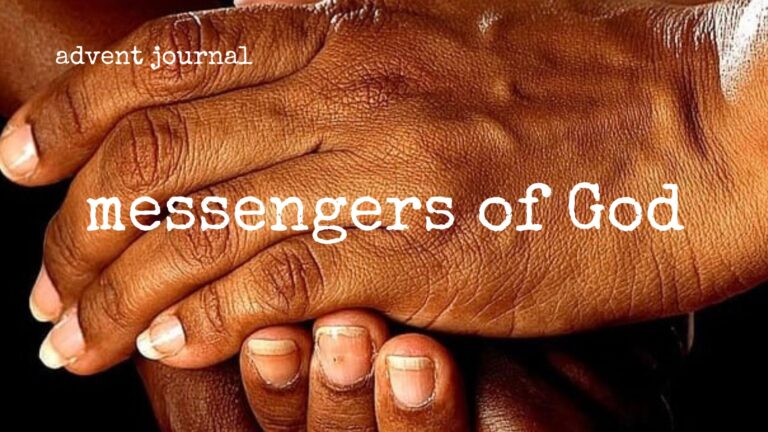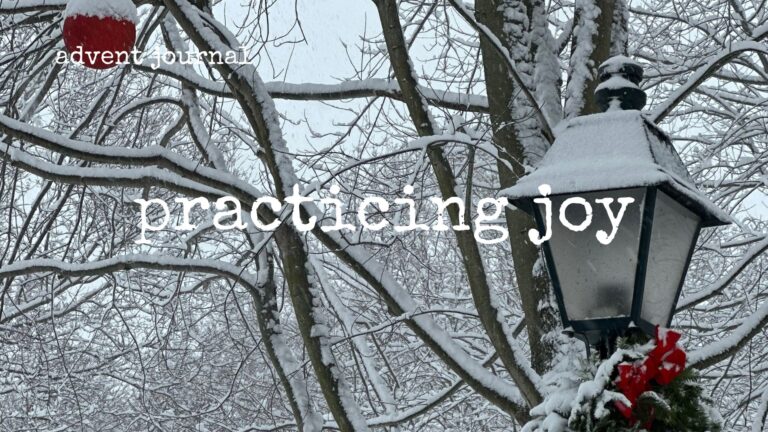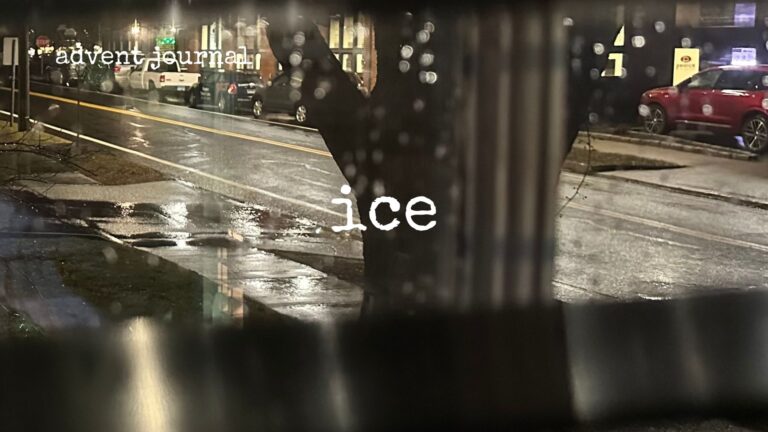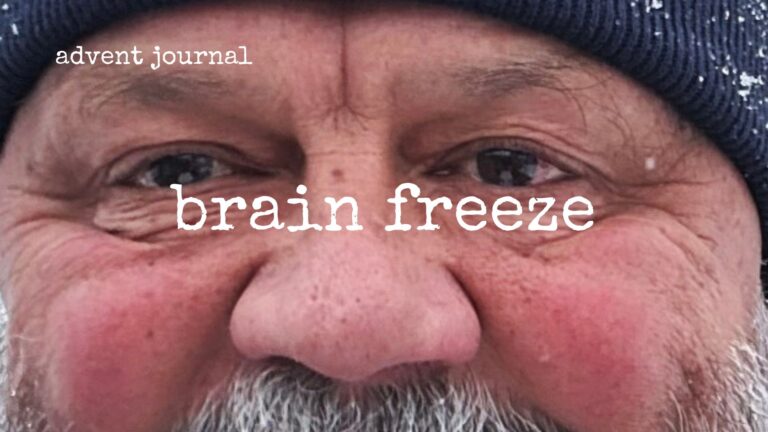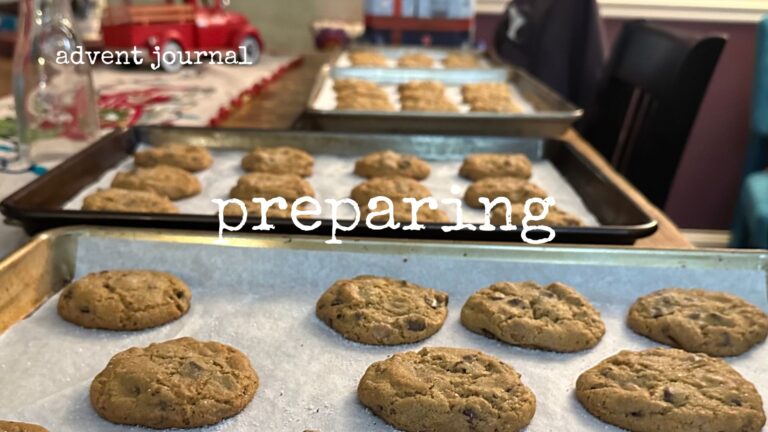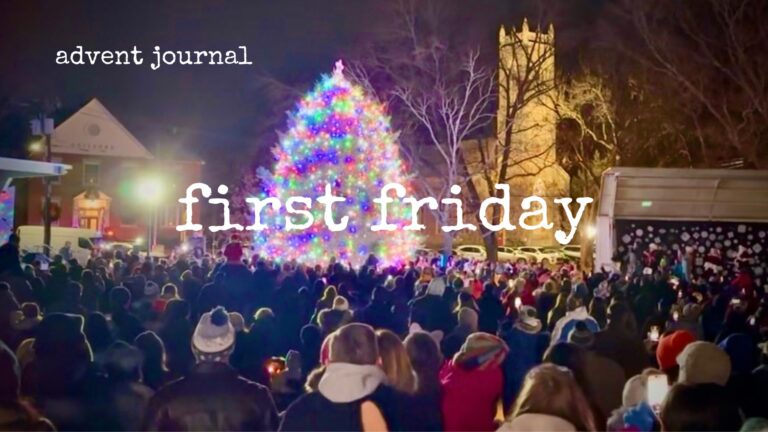The magi came a week early at our church so we could look at the second half of the story (what happened after they left) sequentially, which means we get a clear look at the way Matthew framed the birth of Jesus–and it’s a tough picture. On our calendar, the travelers always arrive at the turn of the year, which is a connection that has its own energy. Here’s this week’s sermon.
_________________________________
In late 1996, the band Counting Crows released a song called “Long December.” Why that matters is that for almost thirty years the opening lines have brought me some consolation. They say,
long December and
there’s reason to believe
maybe this year will be
better than the last
When I look back, I don’t recall a year when those words didn’t feel true to me. I don’t mean that as a pessimistic statement, just that most every year has ended with the hope that the one to come will somehow be less weighty.
About twenty years later, in 2017, Jason Isbell released a song called “Hope the High Road” that I added to my December playlist because of the lyrics in the chorus:
I know you’re tired
and you ain’t sleeping well
uninspired and likely mad as hell
but wherever you are
I hope the high road leads you home again
to a world you want to live in
As I said, these songs are a regular part of my end-of-year reflecting, but I find they make a pretty good soundtrack for the magi, the mysterious, foreign, astrologers who traveled miles and miles in search of a hope they did not comprehend and also provided one of the best bad jokes of the season:
The brought gifts: gold, frankincense, and wait, there’s myrrh!
(I’ll be here all week.)
When we stop reading with the travelers going home by another way to avoid Herod, as we did this morning, the scene closes in a quiet way, but the reality was harsher. When King Herod realized his ploy to find the child had not worked, he commanded that every boy under the age of two be executed. Mary and Joseph grabbed their little one and fled to Egypt, but not everyone had an angel to warn them. The chapter ends with Mary and Joseph moving back to Nazareth after Herod died.
It’s not the Christmas story that we are used to hearing and singing about, but it may be the one we most need to hear when we compare it to the world we live in, where we face another long December.
Matthew ties the slaughter of children to the deep pain the Hebrew people had known in their past: Rachel weeping unconsolably for her children. What was happening was not new, it was just happening to them in real life.
Professor Esau McCaulley asks,
But how can such a bloody and sad tale do anything other than add to our despair? The Christmas story must be told in the context of suffering and death because that’s the only way the story makes any sense. Where else can one speak about Christmas other than in a world in which racism, sexism, classism, materialism and the devaluation of human life are commonplace? People are hurting, and the epicenter of that hurt remains the focus of God’s concern.
Which takes us back to the angel telling Joseph to name the child Emmanuel—God is with us, or as we said last Sunday, God is really with us.
There are those who look at the world, particularly in statistical terms, and couch their hope in statements about ways in which the world is getting better. Historically, for example, almost half of humanity died during childhood. Now that figure is stands at only four percent. As many wars as there are in the world right now, we live in one of the least violent times in history, or so I’m told.
Life is not all long and hard. The tree is still up. The lights are still twinkling. And it is another long December.
I am grateful that things are improving, and I think it matters greatly that we work to eradicate poverty and dismantle racism and sexism and homophobia and learning to care for creation in a way that sustains life for us all. All of those are hopeful actions. But progress isn’t what creates hope. Progress will not make us feel less alone—that’s why I think Matthew tells this story.
If our hope depends on things getting better, what happens when they don’t and we face another long December? How do we keep going?
Nothing the angel said to either Joseph or Mary about God being with us improved any of the circumstances of their lives. None of their difficulties went away, yet they were able to move beyond their fear did because they were willing to trust that God was really with them no matter what the circumstances. It mattered that they were not alone.
It matters that we are not alone.
That trust took them to Bethlehem where the baby was born. The magi came and brought gifts, and they also brought Herod’s wrath without realizing what they were doing. Mary and Joseph and Jesus became refugees in Egypt, fleeing the violence of their home country and trusting, once again, that God was really with them, as their ancestors had done when they fled their captivity in Egypt generations before.
Herod died, as all despots do. Evil is not eternal. Mary, Joseph, and Jesus moved back to Nazareth. Jesus grew up and began to preach and teach and heal and then he was arrested and executed by another Herod. As we know, that is also not the end of the story. The story of God being really with us has continued from December to December, from disappointment to disappointment, from triumph to triumph, from birth to birth and death to death, and our hope survives in the midst of all those things as we trust that God is really with us and God’s love endures through it all, so that we can also.
It is a difficult truth that life is often filled with unjust rulers and violence and private grief and personal pain and all the rest that leaves us wishing most every year that the next one will be better than the last. That’s why the tree is still up, the lights are twinkling, and we continue to tell this story.
The story of the birth of Christ matters because it tells the accompanying truth that God does not deal with us from a distance, that Jesus was flesh and blood proof that God is really with us—even now, even here—that we may not just endure but flourish, that we may find true joy and courage in our daily lives, and that our hope may deepen, whatever the circumstances—a hope that comes from knowing God is with us and, therefore, anything can happen.
Yes, they are all long Decembers, and they are good Decembers, because we remember that the child out-lived the king and grew into the man we know as Jesus, who was killed by another evil ruler and then rose again that we might face this particular December with courage and hope because we trust God is with us. Amen.
Peace,
MIlton
